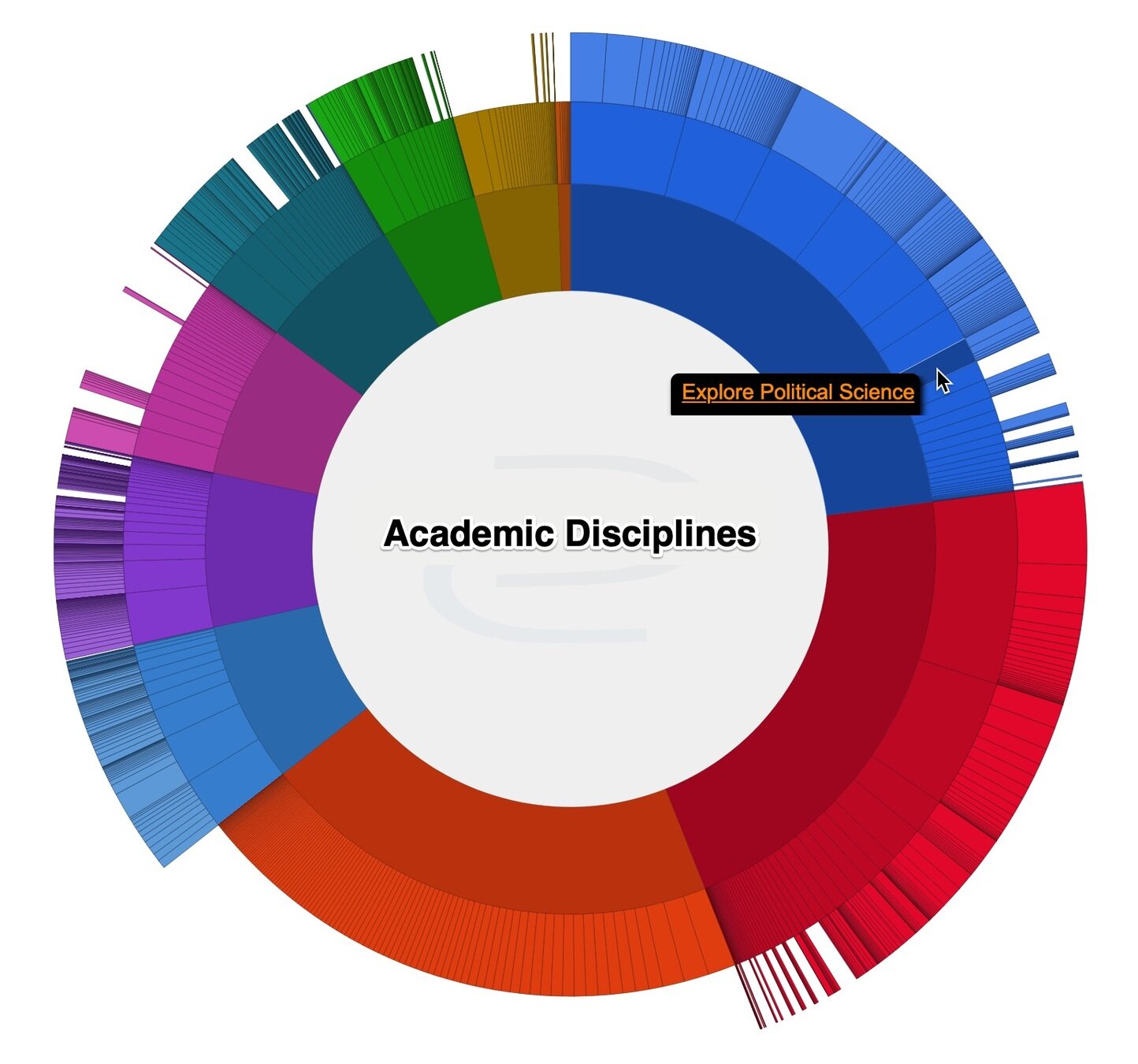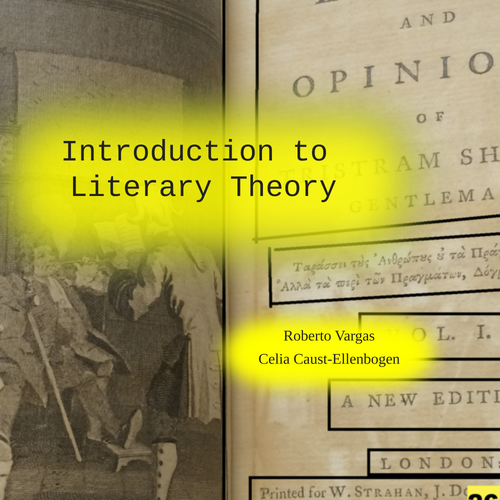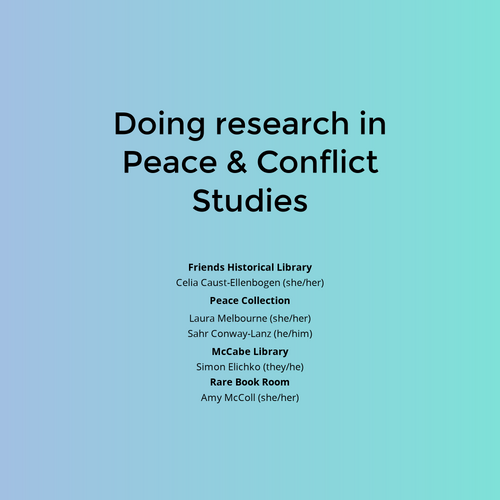Using Zotero & Writing a Literature Review
Simon Elichko (they/them)
Social Sciences & Data Librarian
bit.ly/selichk1
What we'll talk about:
-
What do we mean by research, anyway?
- How to find sources that are both reputable and relevant
-
Reviewing the literature
- How this differs from background reading
-
Wrangling your research
- Making sense of your ideas and the literature
- Using Zotero to organize your readings, notes, and other research materials

Research?
Intellectual interests
↓↓↓
Topics
↓↓
Research question
↓
Sources
↓
Argument
what you know already
multiple smaller questions
↓
↓
↓
what you need to learn more about
Research mapping can help with background reading and your literature review
Take a few minutes to create a concept map for your current research
(can use paper, a whiteboard, or a tool like Coggle.it)
What do you need to know more about?
Background reading
Learning more about the overall topic
You can read news articles and websites, watch videos, etc.
Your sources for background information should be reliable, but they don't have to be scholarly.
Literature review
Identifying how your research project relates to other research in your field
Situating your project into ongoing scholarly debate
"Your intellectual reference group" (Kristin Luker)
Background reading
- Learning more about the overall topic
- Answering questions like: What do you know about this phenomenon? Who is involved? Who is impacted? When and where did it become significant? Where?
- Background reading may:
- Inform your methodological choices (e.g. who do you want to interview? what events should you observe?)
- Be useful for introducing your work and demonstrating its significance to your reader
- Common sources for background info include news articles, statistics, and websites (books and articles are great too!)
What does it mean to write a literature review?
"give readers an intellectual road map of the existing literature in a smart and critical way"
"show us that, however elaborate or intelligent or extensive it might be, that literature doesn’t really answer the question that your book will answer for us."
"...frame your story in the context of an ongoing debate in the literature"
Literature review: some questions
- What existing scholarly research is the closest to your project?
- Do you keep seeing particular scholars' names over and over?
- Whose work do they cite?
- Who has done research that's similar to your project, but different in one or two significant aspects?
- Potential aspects include (among others) geographic area, methodology, identity and demographics, time period, theme(s) emphasized, explanations offered
- What aspects of your topic feel well-covered by the existing research? What approaches haven't gotten as much attention?
You can use your concept/research map and folders in Zotero to help organize your findings.
Scholarly research & academic disciplines
- Social sciences, humanities, STEM
- Social sciences:
- e.g. sociology, political science, economics
- Sociology:
- Scholars
- Departments
- Journals (e.g. Social Forces)
- Professional organizations (e.g. American Sociological Association, Association of Black Sociologists)
- Conferences
These boundaries between fields aren't neat and tidy. Many projects are interdisciplinary and engage with methods, literature, and questions from multiple fields. Still, disciplines and related institutions are influential and important to know about.
Scholarly Journals in Political Science
(or sociology, economics, etc.)
Tool for exploring journals: Browzine browzine.com
(Off-campus? Search tripod.swarthmore.edu for Browzine.)
How can you tell if a journal is scholarly?
an editorial board of social scientists (e.g. sociologists, political scientists, economists) • articles are written by social scientists • articles cite other research • peer-reviewed
Scholarly Books
Tripod: Search TriCo Libraries tripod.swarthmore.edu
Worldcat: Search libraries worldwide worldcat.org
You can find scholarly books in Tripod and Worldcat,
but you'll also find plenty of non-scholarly books intended for a popular audience.
How can you tell which books are scholarly?
• published by a university press or academic publisher (e.g. Routledge, Springer/Palgrave) • cite other research • written by political scientists (or sociologists, economists, etc.) •
Where to find scholarly research
You can search Tripod for books and articles.
voter turnout registration "united states" (919 results)
→ Limited results to 2022-2024 (67 results)
→→Limited to Peer-reviewed Journals (22 results)
Books and journal articles in JSTOR are limited to scholarly journals and university presses. High-quality, curated selection. Citations will be accurate.
However, JSTOR doesn't generally include the most recently-published journal articles (last 3-5 years). So for current topics, you need to look beyond this database.
Wider range of sources than JSTOR and Tripod. Includes recently-published articles (unlike JSTOR). But the quality is inconsistent, and doesn't give you a lot of ways to narrow results besides trying different keywords.
Books and journal articles in Google Scholar are often scholarly, but not always. You'll find a mix of higher and lower-quality sources here. Evaluate carefully!
Citations regularly have errors or are misleading (example), so pay attention.
Find databases using TriCo Libraries Research Guides. You can ask a librarian for suggestions.

ProQuest Social Sciences lets you find research from social sciences journals, among other sources. Gives you useful options for exploring articles by publication, subject, and other filters.
Where to find scholarly research
Let's try searching the ProQuest Social Sciences database for articles related to your topic.
Keep it simple! Just choose 2-3 keywords for now.
- For example: disaster inequality
To expand your results, add a synonym or related word:
Reviewing the literature:
ProQuest Social Sciences

Put related words in one box and write OR in between each.
How do you get the PDF for
an article you find in
ProQuest?
In your search results, click
on the article you want.
Use the FindIt button to search Tripod.
In Tripod, follow the Download PDF
or View Online link.


Use the search filters to narrow down your results to more relevant articles. (Click on More > to view the full lists.)
- Publication title
- Location
- Subject


Relevance
-
Topic: Is it on topic?
- Search within the article
- Time frame: When was it published? When did they do fieldwork or collect the data? Is this time frame relevant for your need?
- Geography: Does it cover a place that's relevant for you?
-
What are you looking for?
- Refer back to your concept map to clarify your needs
-
Are you looking for...?
- Other scholars' arguments to build on, respond to, critique
- Background information
- Data or texts to analyze
- Methods of approaching a question
Quality
- Is it scholarly? (if you're looking for scholarly research)
-
Author
- Author/contributor bios
- Or you can look them up
-
Publisher
- _____ University Press
- Routledge, Springer/Palgrave
- Cites social science research
-
Author
- Citations
- How often is this article or author cited?
- How widely cited are articles in this journal?
How do you know if a source is any good?
Citations & Reputation
You can look up citing articles (books, etc.) using
Google Scholar: scholar.google.com
Click "Cited by #" to view the list
Use Search Within to filter results
Try it: The effect of registration laws on voter turnout
SJ Rosenstone, RE Wolfinger American Political Science Review, 1978
Search within citing articles: college campus
Citations & Reputation
You can also look up journal rankings:
Important caveat about citation counts
Citation counts, journal indicators and rankings, and other bibliometric analyses are very limited in their usefulness (and accuracy).
Bibliometrics can be a helpful tool when you're not familiar with the academic discipline/field and don't recognize the authors or journals.
Bibliometrics are often a decent indicator of how widely-known a publication is. But widely-known doesn't necessarily mean well-respected or high-quality. (Scholars in different academic disciplines/fields may judge the same article differently in terms of quality and relevance to their work.)
Ultimately, a knowledgeable expert in the relevant discipline/field (like your faculty mentor) is the best judge. You can also use resources like scholarly handbooks, companions, review articles, and bibliographies.



Resources for navigating scholarly literature
- These are written by scholars with relevant expertise
- Purpose is to highlight key themes and areas of debate in the literature
- Can help you find sources to read and cite
- Particularly useful for finding your way through a large body of literature, including figuring out which questions and arguments have been addressed by other scholars.
- Example: Review article published in the journal Annual Review of Political Science:
Political Inequality in Rich Democracies (2023), Elässer and Schäfer
Find links to these resources: Topic Introductions Guide
(For HEARD students, see Review Articles box in particular.)
Staying organized
-
Document your process
Consider keeping a simple log of what you work on each day. Some students find it helpful to keep a list of questions and keywords.
-
Be consistent
Save your sources to the same folder so you can find everything even if you forget what's in an article. Descriptive filenames help.
-
Annotate or categorize sources
Group similar sources together when you find them, so it's easier to write your literature review. (See: Tools)
Zotero lets you create custom research libraries (for you, for your group, etc.)

Features: save sources easily, categorize into folders, attach notes, highlight PDFs, create formatted citations

If you save sources to Zotero (double-check that the info is correct!), you can quickly create formatted citations for your paper.
For more on using Zotero, let's go to:
Image credit
Jessica Ruscello, 2016. Wooden frames, Treasure Island Flea Market. https://unsplash.com/photos/assorted-color-wooden-frames--GUyf8ZCTHM
Research help
Reach out to talk about your ideas, projects, questions
Discussing your work and asking questions is a great way to build skills
You can get help setting up and using Zotero and other tools
Simon Elichko (social sciences librarian)
- Make an appointment: bit.ly/selichk1
- Email selichk1@swarthmore.edu
Zotero & Literature Reviewing Workshop
By Swarthmore Reference
Zotero & Literature Reviewing Workshop
Summer workshop for HEARD fellows
- 828











